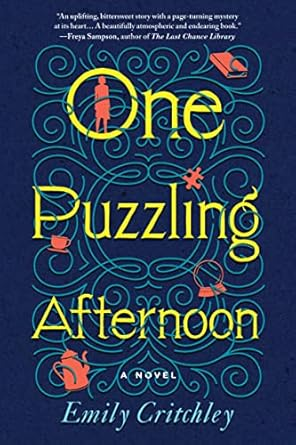I love "what if" books, where you have a premise that the author just goes with, no matter how out there it is. And the question of how or why really isn't the point. I think Jose Saramago is great at what ifs, but reading his books requires a degree of patience and concentration that Gramazio doesn't demand.
So, what if...a husband emerged from your attic? Forget the fact that you're not even married, or that you have an apparently magic attic. What would you do? What if, every time your husband went into the attic, he disappeared and a new one came out?
Could it be fun shopping for husbands? That one's too tall, that one's wearing a terrible shirt, that one chews too loudly. And even if you get a good one, you can't help but wonder if he's the best the attic has to offer. Then there's the business of how to get the bad ones back in the attic and how to keep the good ones out of it.
As I'm writing this, I'm realizing how incredibly misandrist this sounds, but hear me out! Gramazio is able to take this premise and write a compelling and very funny story. Coming off of reading The Three-Body Problem, I'm starting to realize Lauren's life in The Husbands has its own periods of stability and chaos. And even the so-called stable periods, where she doesn't immediately send a husband back to the attic are filled with tension - if she likes him, how will she keep him from fetching that much needed box up there? If she doesn't like him, how will she get him back in? And what I like the most is how Gramazio shows the multiple variations of Lauren's life had she just made slightly different decisions - and how this affects her relationships with her friends and family. There's rich Lauren, poor Lauren, swinger Lauren, her best self Lauren, the Lauren who married her ex, and more.
And then there's Bohai, one of Lauren's husbands who seems to know more than he lets on when he comes down those attic stairs. I feel like Bohai needs his own book. He was such a fun, well-written partner. I loved any chapter that had him in it.
So what would you do with a magic attic? Would you embrace its power? Or run for the hills? Whether or not you agree with Lauren's choices, you'll love seeing her make them.





